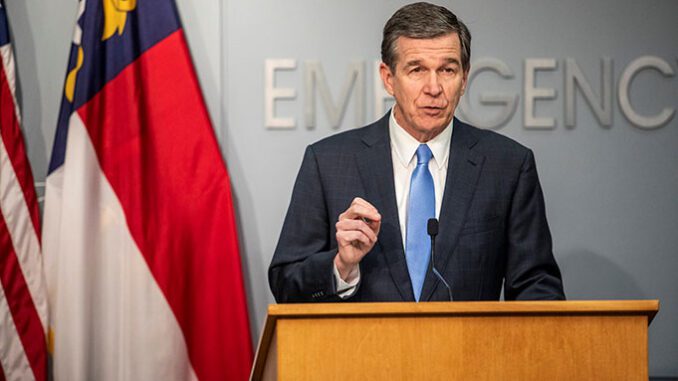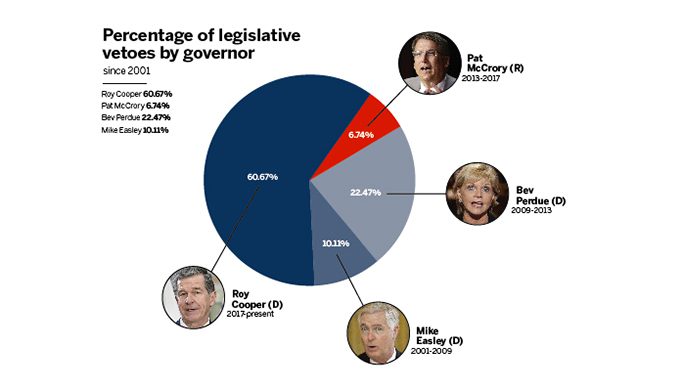
RALEIGH — Gov. Roy Cooper has three more years to extend his record as the most veto-happy North Carolina governor, already having executed 54 of the 89 vetoes in the state’s history.

Traditionally known as a “weak governor” state, North Carolina was the last state in the nation to grant its governor a veto, which passed in 1996.
The first gubernatorial veto was issued by former Gov. Mike Easley on Nov. 3, 2002. In a handwritten note, Easley said the bill, which would have expanded appointments given to the House speaker and Senate president pro tempore, did not meet the statutory requirements to appoint members to serve on certain boards and commissions.
Easley vetoed nine bills total in his eight years as governor.
His successor, Beverly Perdue, vetoed a total of 20 bills in her four years as governor. All but one of her vetoes occurred in the two years following the Republican takeover of the General Assembly in 2011.
She vetoed the state budget in 2011, leading to a legislative override, of which former House Speaker and now two-term U.S. Sen. Thom Tillis’ called “the proudest moment of my political career.”
Following a decision not to run for re-election, Republican Pat McCrory succeeded Perdue in a blowout but would also serve just one term as governor.
McCrory vetoed six bills, four of which saw legislative overrides.
After defeating McCrory to become the state’s chief executive, Cooper’s veto pen has been busy.
In the first biennium after becoming governor, Cooper vetoed a total of 28 bills on issues ranging from the makeup of the N.C. Court of Appeals and the State Board of Elections to the state budget.
Legislative Republicans held supermajorities in the General Assembly, though, and were able to override 23 of those 28 vetoes.
In the second half of his first term, Cooper vetoed a total of 25 bills, and perhaps more importantly for the governor, none were overridden after legislative Democrats were able to win enough seats to sustain the vetoes.
As of May 4, Cooper has just one veto in the current legislative year — SB 37, the bill to reopen schools, which ultimately saw a compromise pact agreed upon by the legislative and the governor.


